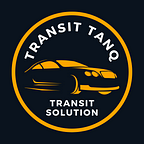AI-Managed Public Transit: Task Execution and Optimization
To get the most out of the most recent technological solutions, businesses must make wise investments. Artificial Intelligence (AI) is one such technology that can provide organizations with actionable advice and insights with greater efficiency. With technology developing day by day, the results from recent studies have helped guide businesses to adopt it.
AI Optimization
There are several reasons why AI is a good bet for the transport industry. These include the fact that it can help reduce road accidents and improve efficiency. It can also help in improving traffic flow and reducing carbon footprints. Several AI solutions are currently being tested, some of which are commercially available. These include using AI Optimization of routes to relieve congestion on the road. It can also help in building more sustainable transport systems.
Using AI to optimize a transport system can help
- Reduce traffic congestion and carbon emissions.
- Boost the coordination between taxis and ride-sharing services.
- Optimize routing and scheduling.
- Monitor real-time traffic conditions to improve police performance.
- Ensure a smooth flow during peak hours.
- Reduce accidents and road fatalities.
Intelligent Transportation for Cities
Artificial intelligence can help governments build sustainable cities and protect human well-being. It can provide accurate predictive behavioral models of individual preferences. It can also improve efficiency and cost efficiency. It can help manage transportation organizations and their employees. All of these are compelling reasons to implement AI.
One of the most common applications of AI is in transportation planning. Using AI to optimize delivery routes and improve off-peak hours can yield significant savings. Using AI transportation algorithms will save $74.5 billion in the United States alone.
Besides transportation, AI can also help manage logistics and freight transport. This includes optimizing time schedules, pedestrian behavior, and logistical systems. There are also several applications of AI in logistics, such as routing, optimizing scheduling, and reducing traffic flow. In addition, AI can help logistical design systems and increase the chance of discovering new routes.
AI Technology VS Privacy
AI has been used in various industries, including banking and entertainment. It has also caused disruptions in these industries. Some of these applications include using Artificial Neural Networks, Ant Colony Optimizers, and the ability to handle large amounts of data. However, getting the most out of AI applications in the transportation industry may take work. There are also some concerns about privacy, such as who can access the data collected from AI applications. But there are AI-based transportation software companies such as QRyde which recognizes the importance of protecting personal information and are committed to processing it responsibly and in compliance with applicable data protection laws in all countries in which they operate. To make the most of AI, organizations must consider the regulations of their jurisdictions. Some countries do not support using autonomous vehicles, while others still find the need to develop autonomous transport systems.
The latest study explores the uses of Artificial Intelligence in various industries, including transportation. It aims to identify the most effective applications of AI while also highlighting the advantages and disadvantages of each. Get to know more how AI is helping public transportation by clicking on to this link https://qryde.com/request-a-demo/.
